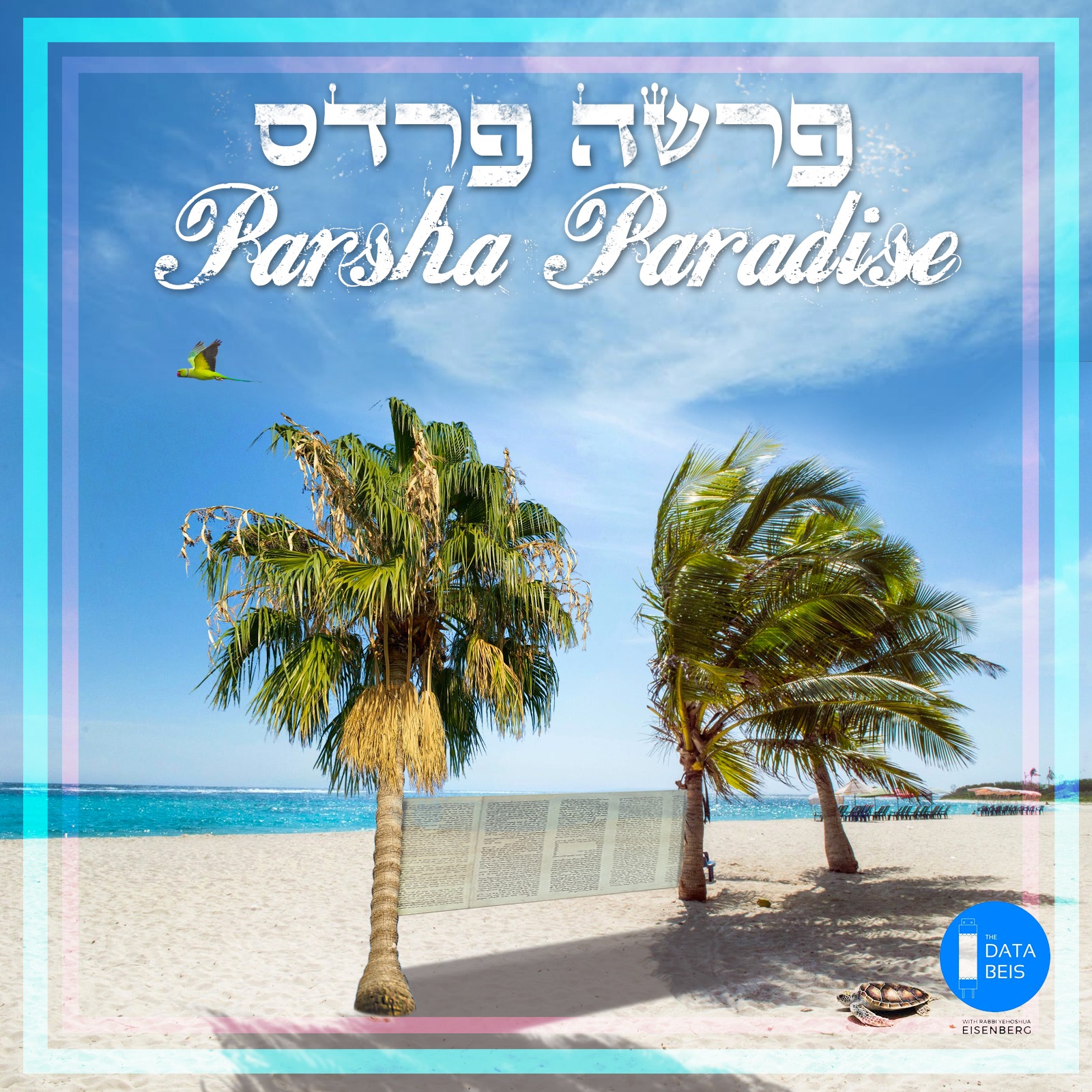This D’var Torah should be a Zechus L’Ilui Nishmas my sister, Kayla Rus Bas Bunim Tuvia A”H, my maternal grandfather Dovid Tzvi Ben Yosef Yochanan A”H, my maternal grandfather Dovid Tzvi Ben Yosef Yochanan A”H, my paternal grandfather Moshe Ben Yosef A”H, my uncle Reuven Nachum Ben Moshe & my great aunt Rivkah Sorah Bas Zev Yehuda HaKohein.
It should also be in Zechus L’Refuah Shileimah for:
-My father Bunim Tuvia Ben Channa Freidel
-My grandmothers Channah Freidel Bas Sarah, and Shulamis Bas Etta
-MY BROTHER: MENACHEM MENDEL SHLOMO BEN CHAYA ROCHEL
-Mordechai Shlomo Ben Sarah Tili
-Noam Shmuel Ben Simcha
-Chaya Rochel Ettel Bas Shulamis
-And all of the Cholei Yisrael, especially those suffering from COVID-19 and the Meiron tragedy.
-It should also be a Z’chus for an Aliyah of the holy Neshamos of Dovid Avraham Ben Chiya Kehas—R’ Dovid Winiarz ZT”L, Miriam Liba Bas Aharon—Rebbetzin Weiss A”H, as well as the Neshamos of those whose lives were taken by terrorists (Hashem Yikom Damam), COVID-19, and the Meiron tragedy.
-It should also be a Z’chus for success for Tzaha”l as well as the rest of Am Yisrael, in Eretz Yisrael and in the Galus.
בס”ד
Sponsored by:
• Anonymous
לע”נ שמואל מנחם בן אריה לייב
לע”נ לאה בת אברהם
לע”נ יהודה חסדא יקיר בן הרב שלמה
For the rest of my audio content, please visit me at The DataBeis:
https://jewishpodcasts.fm/thedatabeis
Parsha Paradise/פרשה פרדס – Yisro: “Do Not Murder” – Is it That Simple? ??
https://jewishpodcasts.fm/thedatabeis/30800
The sixth of the Aseres HaDibros is “Lo Sirtzach.” What exactly does it mean and entail? Although this prohibition would seem simple enough to uphold, the Issur is quite broad. Using the four angles of Pardeis, we will investigate just how broad and yet nuanced it is.
P’shat:
Bechor Shor points out that “Retzichah” is not the only word the Torah used to refer to killing. For example, there is also “Misah” and “Harigah.” So, what is “Retzichah”?
He defines it as “מורטר”א” (Meurtre, Mord) or in English, “Murder.” In other words, Retzichah refers to the unjust and unlawful taking of a life (i.e. not self-defense or capital punishment).
Now, although not all killings are Retzichah, Retzichah is much broader than unlawful killing. Ibn Ezra expands Retzichah further than bloodshed with one’s hand. Even bearing false testimony (in violation of another one of the Aseres HaDibros) and which thereby causes an unfair death sentence is included in our prohibition. Ibn Ezra adds that speaking Rechilus (gossip), issuing maliciously ill advice or even withholding important information which results in another’s death is included in “Lo Sirtzach.”
(The Chizkuni cites both of the above points in his definition.)
Remez:
Ba’al HaTurim points out that this prohibition which is the 6th Dibur, contains 6 letters (“לא תרצח”), and is committed against man who created on Day 6.
The Vilna Ga’on observes a fascinating difference between the two ways these words are leined, based on Ta’am Tachton versus Ta’am Elyon. (Ta’am Tachton is the regular Trop which is divided by regular Pesukim, and Ta’am Elyon is the unique Trop that is divided by each Dibur of the Aseres HaDibros.)
The Gra observes that in the regular Ta’am Tachton, the word is “תִרְצַח” with the “Patach” ( ַ) underneath the צ, while in the special Ta’am Elyon, the word is “תִּרְצָח” with a “Komatz” ( ַָ) underneath the צ.
What is the difference between these Nekudos? Patach means open while Komatz means closed. Now, why is that significant?
The Gra suggests a couple of reasons. He cites the Gemara which describes two kinds of people who bring death to the world; one who issues P’sak Halachah despite being unworthy, and one who withholds P’sak where one is worthy [Avodah Zarah 19B]. The former inappropriately opens his mouth while the latter inappropriately closes his. (Earlier, we saw other ways that one could cause Retzichah by either opening or closing his mouth.)
The Gra also mentions two other people who are considered as having committed Retzichah; one who is Motzi Zera L’Vatalah (wasting seed) [Nidah 3A] and one who refuses to engage in Periyah V’Reviyah (reproduction) [Yevamos 63B]. Again, one inappropriately “opens up” and the other inappropriately “closes up.”
Drash:
Rosh and Kli Yakar comment based on the parallel between the Dibros on each of the two sets of Luchos. By this model, “Lo Sirtzach” (#6) corresponds to “Anochi Hashem Elokechah…”-“I am Hashem your G-d…” (#1).
Me’iri explains that one who “disbelieves” in Hashem, in essence, “kills off” G-d to himself. Some explain that one who kills another refuses to accept and respect his existence like one who doesn’t accept and respect the existence of G-d.
Rosh and Kli Yakar explain the parallel as follows, that one who murders undermines the likeness of Hashem that exists within his homicide victim. With Retzichah, one kills not just the person, but the Tzelem Elokim. Thus, they comment, Lo Sirtzach would include even (requested) euthanasia, mercy killing, and all forms of suicide (for every Rotzei’ach, no matter who, unlawfully strikes that Tzelem Elokim).
Sod:
Tikunei Zohar [93A] points out that Nachash (Primordial Serpent) violated several of the Aseres HaDibros, including “Lo Sirtzach” when he acted against Adam and Chavah. Here, as we saw earlier, by giving ill advice which results in the mortality of mankind, one is guilty of Retzichah.
And we thought it was easy not to violate this one. Clearly, we cannot be too careful with our every action and word. We have to appreciate their impact and be sensitive to all to the Tzelem Elokim in all people.
We should be Zocheh to be weary of this Issur in all its forms, adhere to all of the Aseres HaDibros and the entire Torah contained within them, and Hashem should revive all of those taken unlawfully following the arrival of Moshiach, Bimheirah BiYomeinu! Have a Great Shabbos!

